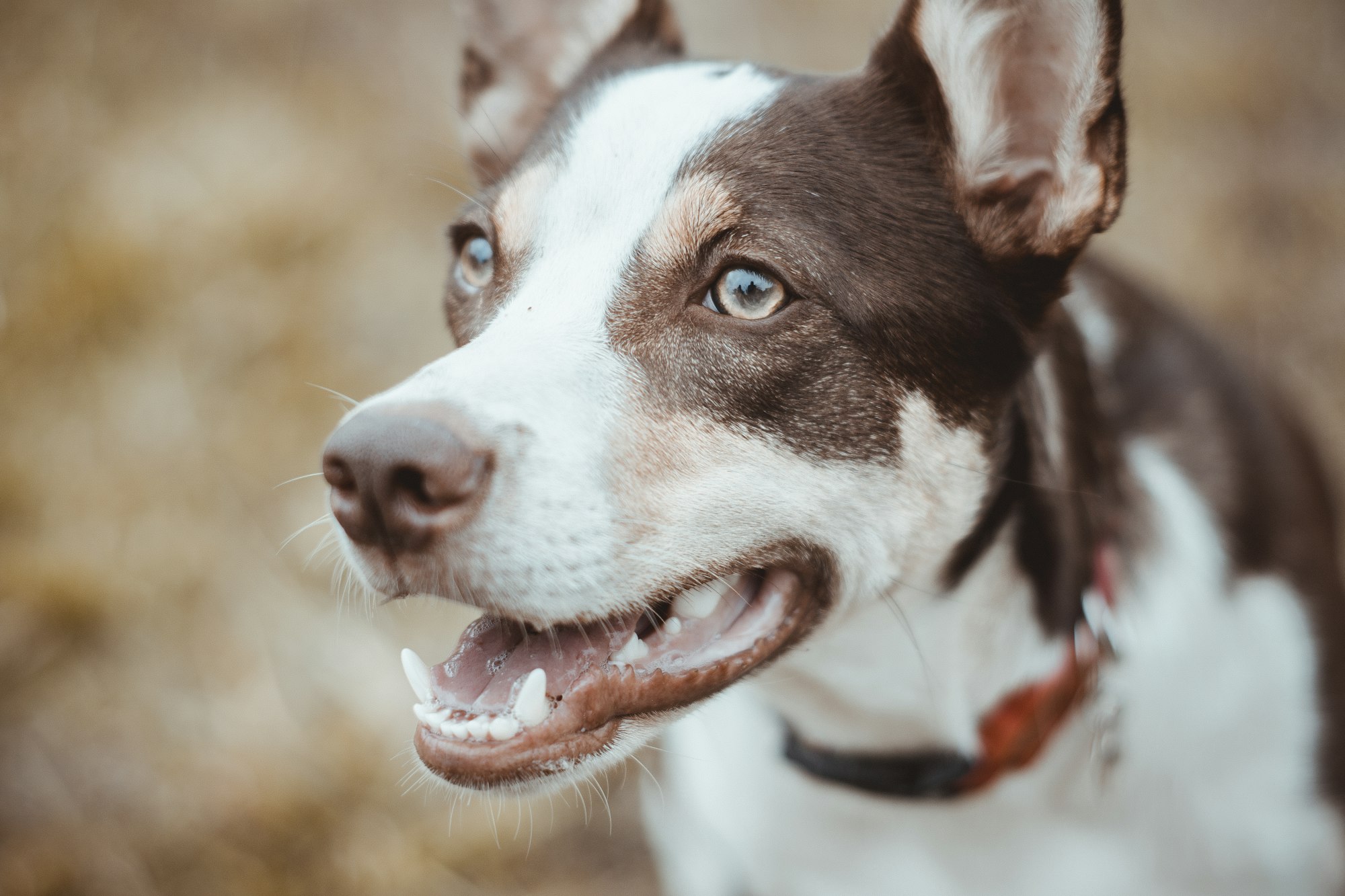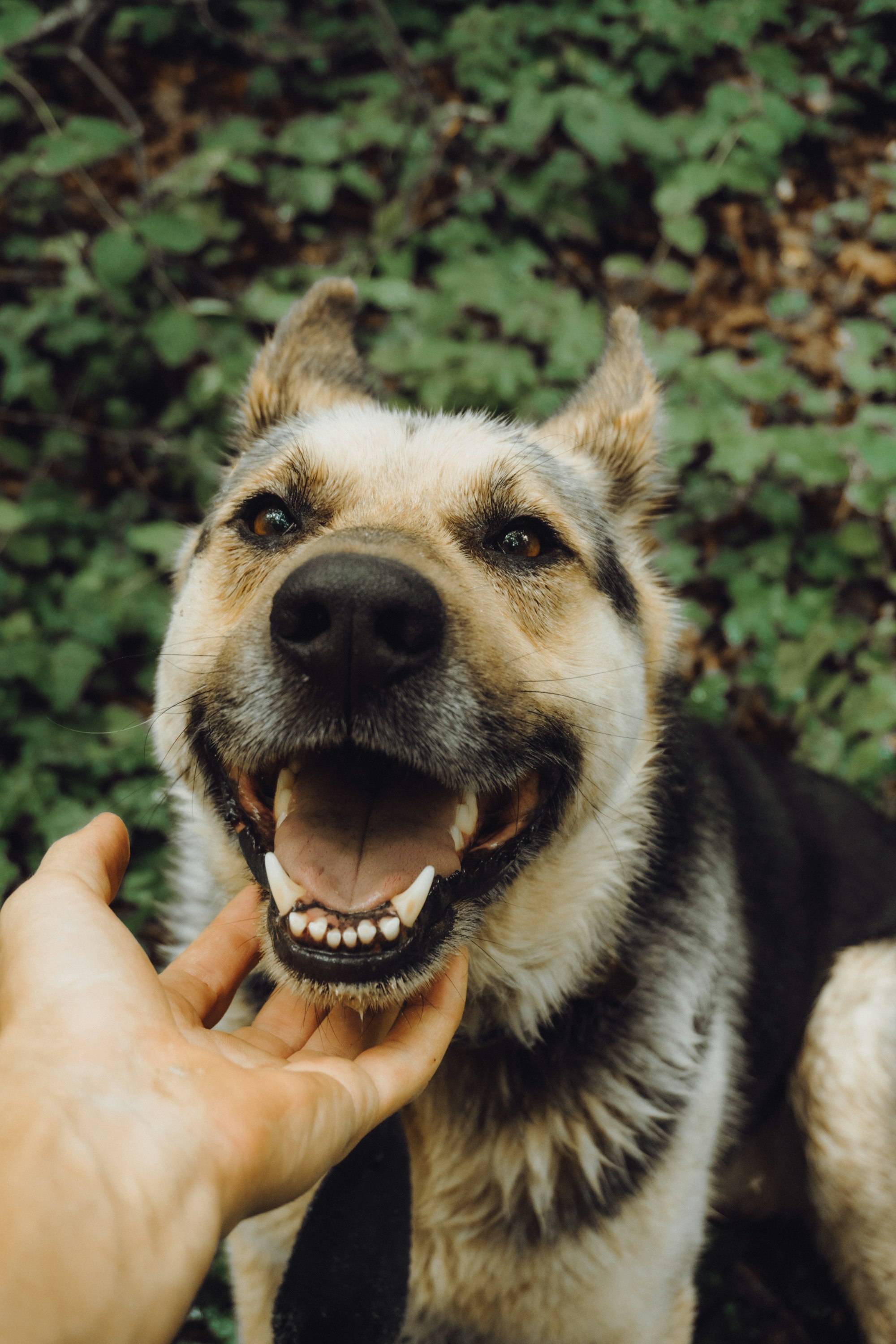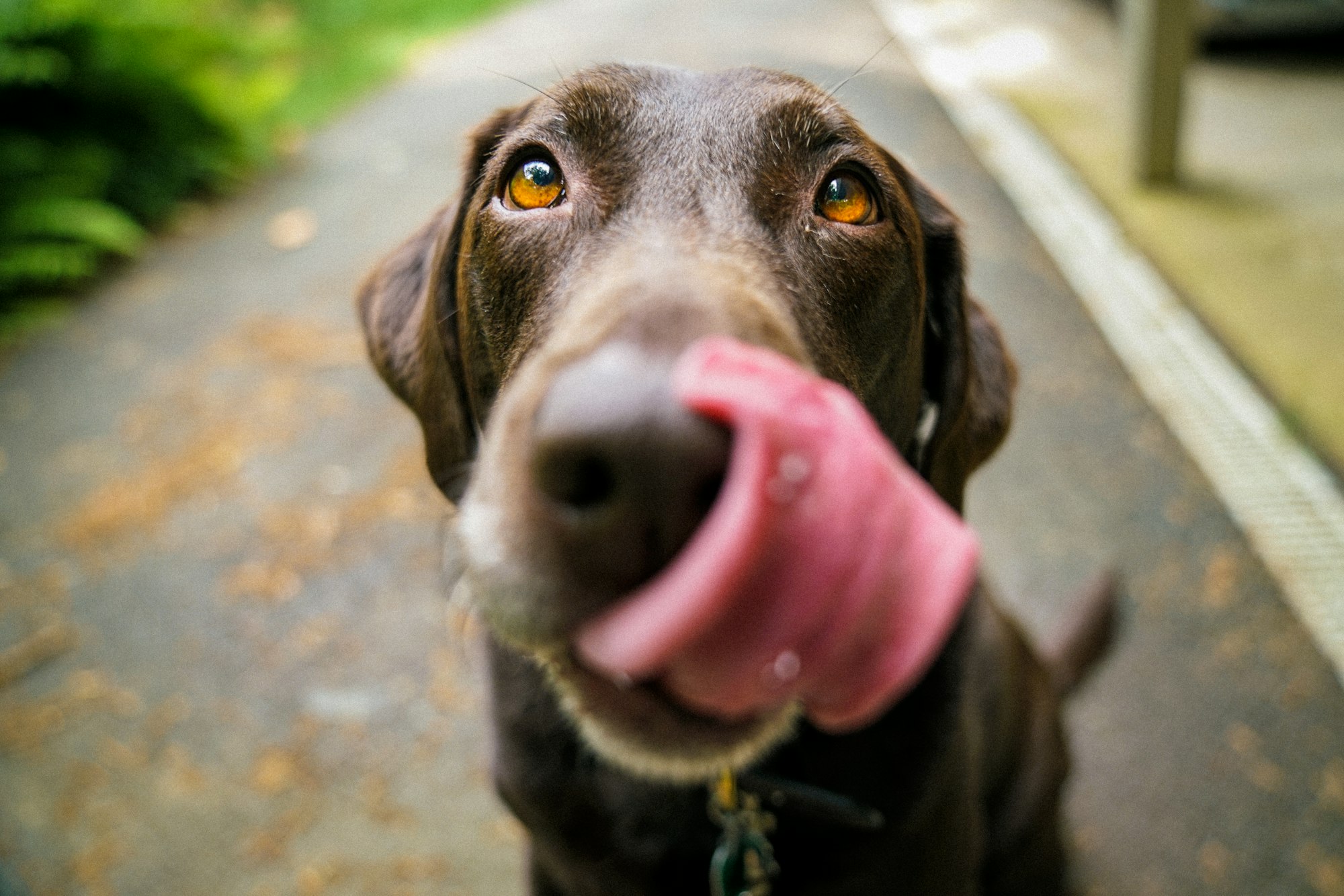Dental hygiene is essential for pups. Cleaning teeth regularly is key for their total health and happiness. So, how often should our furry friends get their choppers cleaned? Let's explore!

Proper dental care helps avoid oral problems such as gum diseases, tooth decay, and stinky breath. Clearing plaque and tartar boosts healthy gums and teeth. How often should we plan these important cleanings?
It depends on the pup - usually every 6 to 12 months. But some may need more frequent cleanings due to age, breed, diet, oral care habits, or pre-existing dental conditions.
Amazingly, brushing dog teeth goes way back. Ancient Egyptians were known to use frayed twigs and animal bones. This proves that throughout history, people have valued oral health in pooches.

Importance of Dental Care for Dogs
Looking after teeth is essential for doggies' overall health and happiness. Just like us humans, pooches can have dental issues such as plaque, gum disease, and cavities. Taking proper care of your pup's chompers not only helps avoid these problems but also keeps their teeth and gums healthy.
Brushing doggy teeth on a regular basis is key. This removes the plaque and food bits that may form tartar. It's best to get a toothbrush made for dogs and toothpaste that's safe for them. And giving chewies or treats to promote dental health is also a great idea.
Neglecting to brush doggie teeth can have serious consequences. Yikes! Poor oral hygiene can lead to painful infections, tooth loss, and even systemic diseases from bacteria entering their bloodstream. Regular dental cleanings and vet check-ups are a must.
Fun fact: Smaller breeds are more likely to suffer from dental problems than bigger breeds. Their small mouths can lead to overcrowding of teeth, making it easier for plaque and tartar to build up. So extra attention needs to be given to their oral hygiene.
Did you know that way back in ancient Egypt, they used chew sticks made from herbs or twigs to naturally clean their pooch's teeth? It's amazing that humans have been aware of the importance of dental care for dogs for centuries.
When to Start Dental Care Routine
For dogs, good dental care begins young. When they're still a pup, introduce gentle brushing and inspecting their teeth and gums. This makes them comfortable and keeps their oral health in check.
Maintain the routine by brushing their teeth 2-3 times per week. Give them chew toys or dental treats to help clean their teeth and reduce plaque and tartar.
Regular cleanings by a vet are advised every 6-12 months. This includes checking their mouth, removing plaque and tartar, and treating any dental issues.
Create a positive experience with dental care. Reward them with treats or praise after each session. Introduce the best dog toothpaste flavors they like and fun interactive toys to make it enjoyable.
How Often Should Dogs Get Their Teeth Cleaned?
Regular dental care is key for our furry friends' health and well-being. So, how often should a dog get their teeth cleaned? Let's find out!
It's recommended to have a professional dental cleaning at least once a year. This check-up ensures any hidden issues are spotted and taken care of quickly.
Some dogs may need more frequent cleanings. Breeds with crowded teeth or smaller breeds may benefit from cleanings every 6-9 months.
In addition, daily brushing with canine-specific toothpaste and using dental chews/treats helps reduce plaque buildup between pro cleanings.
Not taking care of their teeth can lead to various problems, like gum disease, tooth decay, bad breath, and even more serious conditions affecting vital organs.
Did you know that in ancient Egypt, they practiced dentistry on animals? They were aware of the importance of oral hygiene for humans and their furry companions.
Therefore, regular care and prevention are essential for our four-legged friends' dental health. By following a consistent plan of professional cleanings and home maintenance, we can ensure our pup's happy life with bright smiles!
Signs of Dental Problems in Dogs
Dental problems in dogs are often hard to spot. But, being vigilant for signs is key. Taking good care of your pup's teeth can stop more issues in the future.

- Bad breath? That's a tell-tale sign of dental problems. If your pooch's breath smells off, it could mean an issue.
- Changes in eating habits? If your pup suddenly can't eat crunchy dog food, it could be dental discomfort.
- Visible tartar or plaque? This accumulates when there's dental trouble. Check for yellowish-brown tartar and it may mean a cleaning is in order.
Regular vet check-ups are essential. Otherwise, gum disease, tooth loss, or even systemic infections could arise.
80% of dogs suffer oral disease by age 3. So, dental care is essential for their health.
Fun fact: According to the American Veterinary Dental College, periodontal disease is the most widespread infectious disease in dogs.
Home Dental Care for Dogs
Maintaining good dental hygiene for your pup is a must! To help keep their teeth clean, remember these key pointers:
- Brush your pup's choppers using a toothbrush and toothpaste just for dogs.
- Skip the human toothpaste; it can be dangerous for your pet.
- Start off with short brushing sessions, and reward your pup for good behaviour.
- Offer dental chews or puzzle toys to help scrub away plaque and tartar.
- Examine your dog's mouth for any signs of dental problems, like bad breath, swollen gums, or loose teeth.
- Seek advice from your vet on your pup's specific dental care needs.
To take your pup's dental health to the next level, vet check-ups are a must. Plus, a balanced diet can help reduce the risk of tartar build-up. With these simple strategies, you can keep your pup's teeth healthy and promote their overall wellbeing.

Pro Tip: Not sure how often to brush your pup's teeth? Get personalized advice from your vet on the best brushing techniques for your pup's breed, age, and individual needs.
Professional Dental Cleanings for Dogs
Professional cleanings for dogs involve a vet examining the mouth, gums, and teeth. Scaling to remove plaque and tartar is done, then polishing to make the tooth surface less susceptible to buildup. Dental X-rays may also be taken to look at the internal health of the teeth.
Anesthesia is used to keep your dog calm and still during the procedure. Between professional cleanings, brushing with dog-specific toothpaste and providing chew toys or treats can help reduce tartar. Enzymatic water additives can also aid in maintaining oral hygiene.
Proper dental care is essential for your pup's health. Follow these tips to ensure healthy teeth and gums throughout their life.
Conclusion
Prioritizing your pet's dental health is vital. Regular teeth cleaning is necessary to avoid dental diseases and stay healthy. Not taking care can cause serious issues, so it's important to be prepared.
Every dog needs different care. Talking to a vet is the best way to know the optimal schedule for your pet. Oral hygiene habits, diet, genetics, and overall health are all factors to consider.
A vet should clean your pup's teeth at least once a year. This removes plaque and tartar that brushing can't. Visits help identify issues early, preventing major dental problems.
Prevention is key. Daily brushing and dental chews help maintain oral health between visits. Invest in your furry friend's long-term happiness by scheduling check-ups and following your vet's recommendations. Enjoy countless happy moments together!

Frequently Asked Questions
1. How often should dogs get their teeth cleaned?
It is generally recommended to have your dog's teeth cleaned by a professional veterinarian once every 6 to 12 months. Regular dental care is important to prevent dental diseases and maintain good oral health.
2. What signs indicate that my dog needs a teeth cleaning?
If you notice bad breath, yellow or brown tartar buildup, swollen gums, difficulty chewing, or loose teeth, it may indicate that your dog needs a teeth cleaning. Regular dental examinations can help identify these signs early on.
3. Can I clean my dog's teeth at home?
While regular at-home dental care is important, it is not a substitute for professional teeth cleaning. Brushing your dog's teeth daily, providing dental treats, and using dental rinses can help maintain oral hygiene, but a veterinarian should perform a thorough cleaning to remove tartar and plaque.
4. Are there any risks associated with dog teeth cleaning?
Generally, teeth cleaning procedures are safe for dogs. However, there is a small risk of complications such as anesthesia reactions or minor oral injuries. It is important to choose a qualified veterinarian and discuss any concerns you may have.
5. Can I use human toothpaste to clean my dog's teeth?
No, you should never use human toothpaste on dogs. Human toothpaste contains ingredients that can be toxic to dogs if swallowed. Instead, use toothpaste specifically formulated for dogs, which is safe for them to ingest.
6. How can I help prevent dental issues in my dog?
In addition to regular dental cleanings, you can help prevent dental issues by providing your dog with dental-friendly toys and treats, feeding them a balanced diet, and maintaining a good oral hygiene routine. Regularly checking their teeth and gums for any abnormalities is also essential.






